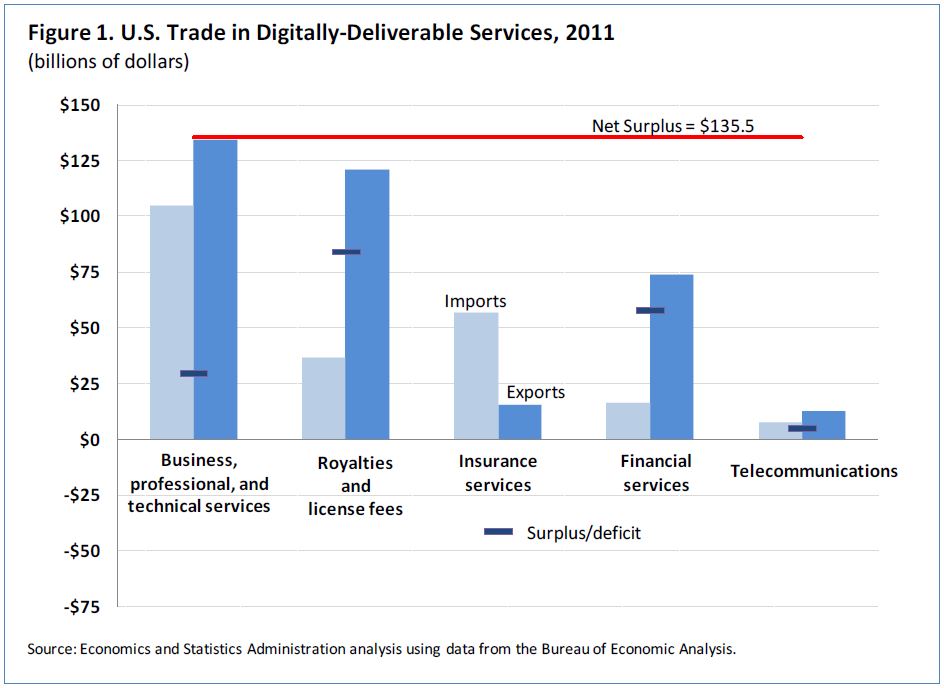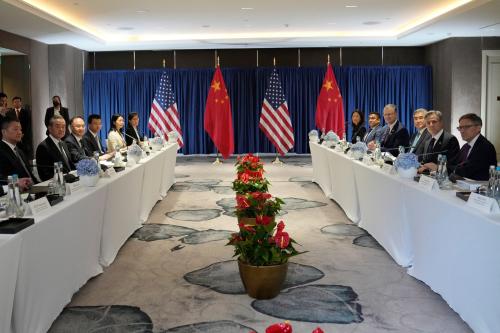The perceptive digital business strategist and futurist Irving Wladawsky-Berger writes in his blog that:
“GDP measurements, while helping us better manage the 20th century industrial economy, do not adequately reflect some of the most critical areas we need to better understand and manage in our 21st century economy, including services and quality-of-life, digital goods over the Internet, or value creation and value capture. If our metrics of economic performance are flawed, our policies and decisions will be distorted. We need a revolution in measurements to go along with our digital technology and digital economy revolutions.”
The Department of Commerce’s Economics & Statistics Agency (ESA) has taken a valuable step toward measuring the digital economy by looking at the contribution of digital technology to international trade. As part of the work of the Commerce Internet Policy Task Force, ESA released a study in January on the value of “digitally-enabled” cross-border trade ‒ “services that are principally or largely enabled by information and communication technologies,” mainly services other than construction, royalties and license fees, insurance and financial services, and telecommunications.
The study found that this trade “accounted for over 60 percent of U.S. service exports in 2011, and about 17 percent of overall U.S. goods and services exports. In dollar terms, U.S. exports of digitally-deliverable services totaled $357.4 billion, while imports totaled $221.9 billion, resulting in a trade surplus of $135.5 billion.”
Almost half of this trade surplus came from trade with Europe, valued at total exports of $162 billion and a net of $61 billion. The ESA study underscores the importance of the flow of digital information to the United States and global economies, and in particular of ensuring that ongoing Transatlantic Trade & Investment Partnership negotiations and discussion of the US-EU Safe Harbor Framework enable the continued flow of digital information and “digitally-enabled cross-border trade.” The fallout from the Snowden disclosures has strengthened European voices wanting to increase digital trade barriers, but the stakes are too high on both sides of the Atlantic.



Commentary
Digital Trade and the Transatlantic Trade and Investment Partnership
March 3, 2014